- Home
- Tamara Leigh
LADY EVER AFTER: A Medieval Time Travel Romance (Beyond Time Book 2) Page 3
LADY EVER AFTER: A Medieval Time Travel Romance (Beyond Time Book 2) Read online
Page 3
If not for the crackle of paper, he might have dismantled his emotions piece by accursed piece. But the sound returned his gaze to the vile thing whose envelope had looked so promising upon his return to his house in Knightsbridge.
His fingers contracting into his palm crumpled the letter. Moments later, the balled paper rebounded off the mantel and, with an indignant rustle, began to open before the fireplace that had remained unlit for six weeks.
“Six weeks!” he barked. Six weeks of hell to gain heaven, and now that heaven snatched from him by the words Aryn’s mother had penned with a shaking hand.
Though he closed his eyes, he saw the words. Though he had not read them aloud, he heard them.
It was not proper, thoroughly English Collier Morrow who railed against God, one moment calling Him cruel, the next useless for being a figment of man’s imagination. It was not addicted Collier Morrow who, until recently, had sought relief in the viciously comfortable world of painkillers. This Collier was born of loss, a man who had not loved before Aryn and would not love again.
Love. The silent admission stilled him, then loosed laughter so acrid he nearly choked. It was love he’d felt for her. Still felt. Even in death.
He drew breath until his lungs ached and slowly exhaled, but there was no lightening of the weight that sought to grind his soul into dust. Then Aryn’s name burst from him, and he set about the room toppling chairs and sweeping books, pictures, and precious objects from shelves. But though it was meaningless—would ever be meaningless—he searched for more to lay hands to.
When his eyes glanced over and shot back to the painting above the mantel, he cursed its secret and strode forward. But as he grabbed the frame, knocking askew what might or might not be a portrait of Catherine Algernon, gleaming steel caught his eye.
He seized the sword. Distantly feeling its sharp edges, he stared at his distorted reflection in the blade—Collier Morrow, a man who gave only the leavings of his emotions to any who tried to make a place for themselves in his life.
He gripped the blade tighter. More keenly feeling the pain and blood seeping from his hands, he accepted responsibility for what was lost to him. Though Aryn had died alone of respiratory failure brought on by an acute asthma attack, he was to blame.
Had he sooner accepted the depth of his feelings for her…
Had he not refused to give back a portion of the emotions spent on him…
Had he not resisted admitting himself for treatment until a month after she walked out…
Too late. Ever too late.
As he breathed in hatred of Collier Morrow and his mind gathered curses upon which to empty his lungs, someone called from the other side of the bedroom door, “Mr. Morrow?”
He jerked his head around. “Leave me!”
“Are you well, Sir?”
The voice—familiar and yet not—gave him pause. It was the older woman who had greeted him upon his return to Knightsbridge, the same who had handed him the stack of mail.
Matilda, wasn’t it? Regardless, there had been something peculiar about the woman who was filling in for his vacationing housekeeper, but the moment he had seen the envelope posted from the States—
“Sir?”
“I’m fine!” The lie was so great, he might have repented had he a care for offending God who—if He existed—had cruelly plucked one of the few flowers from among the weeds of His creation.
“Do you require a doctor, sir?”
“No. Now go!”
He listened to her receding footsteps, and when silence once more leaned in on one side of him, a sharper awareness of pain leaned in on the other.
He dropped the sword. Its steely meeting with the hearth resounding through him, he stared at his lacerated hands. This wouldn’t bring Aryn back. Only a miracle would do that, and were those even possible, one wouldn’t be wasted on him.
Old injuries felt alongside the new, his thoughts crawled toward the one thing capable of providing relief. When he had left the drug rehabilitation facility this afternoon, he’d thought the greatest hurdle to triumphing over his addiction was cleared, but Aryn’s death threatened to send him sprawling—to undo all the good of his six-week battle.
As done often during treatment, he reached into his pocket and, ignoring the pain of his cut hand, retrieved what had kept him going when the withdrawal was at its worst. Holding tight to it, he strode to the door and locked it, moments later dropped onto the end of his bed.
He didn’t know how long he sat staring at the black-enameled box, but when he thumbed back the lid, the room was so dim one wouldn’t guess it was a diamond ring inside.
He discarded the box and, by the moon’s glow timidly passing through lightly-curtained windows, searched for light among the facets. None. As if life was extinguished from the diamond the same as it was Aryn.
“All for nothing.” He closed his fingers around the ring. “Utterly meaningless.”
It might only be hours, but more likely days. Unless imagined, the room had shifted from light to dark several times, and the housekeeper continued to ask after him though each time he sent her away with harsh words.
Throughout, he hadn’t moved from the end of the bed, nor slept. Now, with dusk giving way to night, he alleviated the ache of burning eyes by squeezing them closed and opening them wide.
Withholding his gaze from the ring at the center of his blood-crusted palm, he shifted his regard to the portrait of the medieval lady who, like Aryn, had died too young because of a treacherous man.
That last moved his attention to the sword on the hearth. Its blade had severed Catherine Algernon’s life as surely as the one that had severed Aryn’s—the first of steel, the second of addiction and lies.
Thoughts once more circling, ever returning to the truth, he groaned. All would be different had he not betrayed Aryn. She would have been here with him when the asthma struck—had there even been an attack—and he could have saved her. His ring would be on her finger, and a wedding would need planning. But his inability to cope with being bested by his brother had been the death of her.
“I’m sorry,” he grated. And not only selfishly. Were she destined for someone who would love her better, he would wish her another chance at life.
He focused on the ring that was destined for nothing. No hand in his. No joining of lives. No children. No growing old together.
Anger and self-loathing reduced to a dull but persistent throb, he dropped his head back. “Another chance,” he rasped. “One more.”
But if God existed, He was surely unmoved.
Lowering his lids, Collier told himself to accept that never again would Aryn tease him out of a mood, push her fingers through his, and rest her head beneath his chin. Never again would he see himself reflected in her eyes, hold her, and make love to her. Never again anything.
“I didn’t deserve you,” he choked and dropped the ring.
When the bare light of night once more shrouded the room and sleep continued to deny him respite, he felt a fluttering against his brow, but he let the moth be. However, when it brushed his cheek, neck, and hands, a chill went through him as he recalled the first time he had experienced the phenomenon in the presence of Catherine Algernon’s portrait. He had been fifteen.
Now the man he had become opened his eyes to find colorful flakes swirling down around him like leaves on a breeze. Tracing their path to the picture hanging askew above the mantel, he watched as the upper layer of paint peeled away. And this time, it was not merely a handful of flakes. There were hundreds, quickly shedding the landscape that for five hundred years had hidden the woman beneath.
He thrust to his feet. Joints aching, legs weak from disuse, he struggled to find his balance. When he did, he could only stare as the one believed to be the legendary Catherine Algernon moved out of the fifteenth century into the twenty-first.
He gave his head a shake that made the bones in his neck crack, but the face remained one he shouldn’t know.
Grief-induced hallucination, he told himself, doubtless bolstered by sleep deprivation to which he was no stranger when days proved too short—whether during his university studies, in the thick of business, or feeding his passion for adrenaline-inducing sports.
As if to support that explanation, the portrait came sharply into focus though there was hardly enough light. He blinked to dispel the apparition, but she remained—clothed in medieval garb, a red rose on her bodice.
Heart sounding in his ears like waves beating against a sea cliff, he moved forward and had to halt at the center of the room to regain his balance. A weave in his step, he continued to the fireplace and gripped the mantel for support he had not needed since recovering from his climbing accident.
Head back, he studied the woman in the portrait. The eye color was wrong—violet rather than blue—and her features were more mature, but…
“Aryn?” he rasped.
She stared back out of eyes devoid of warmth—as if life had so battered and bruised her it had worn out its welcome. No, not Aryn but Catherine Algernon who had held Strivling Castle against the conquering Yorkists and been slain in the winch room. And yet, impossible though it was, she was nearly a replica of Aryn.
He stepped closer, reached to her, and once more lost his balance. His hand struck the frame, further knocking it askew, then all seemed to slow as the portrait fell toward him. But rather than deliver a blow to the head, it swallowed him into a sea of radiant color.
Certain he must be losing consciousness, he struggled toward the surface but was inexorably dragged to the depths where, flake by flake, the colors dimmed until there was nothing but a great, dark still for his tormented mind to plod through.
He would come to soon, he assured himself. The portrait would be as it was before the aberration, everything returned to its proper place. But not everyone. Not Aryn.
Then he was moving again. Feeling as if he fell from a great height amid the sound of metal on metal, he reached for something to arrest his flight. There was only air, and just when he thought that was all there would ever be, he slammed back to earth.
CHAPTER FOUR
Strivling Castle, Northern England
May 1464
Breath driven out of his lungs, Collier struggled to replenish it, and when he did almost wished he hadn’t. Expelling foul, musty air, he became aware of a chill seeping through him, then something digging into his shoulders, back, and thighs.
He opened his eyes narrowly. The ceiling flickered as if lit by a candle, but despite the dim, it was obvious he wasn’t in Knightsbridge. Then he hadn’t regained consciousness?
He sat up, giving rise to a ring of metal. From shoulder to knees he was clothed in a hauberk straight out of the middle ages—in poor repair but definitely chain mail and the source of his discomfort. Hose, also true to the medieval period, encased his legs above crude leather boots. As further proof he had not returned to his senses, a sheathed sword and dagger were attached to a wide, studded belt encircling his waist.
Wondering how long he would trade cruel reality for this conjuring of the mind, he got his legs beneath him, and with him rose thousands of links that lent twenty-five or more pounds to his frame. That surprised. Though his well-muscled, six-foot-four frame easily supported the weight, he felt it in his shoulders and arms, as if the hauberk were real. He could not recall having such a vivid dream…hallucination…whatever this was.
He clenched his hands and, remembering, opened them. The cuts the sword’s blade had inflicted on them were gone. Absent as well were aches accumulated by way of his love of extreme sports. There was much to be said for leaving reality behind.
Lowering his arms to his sides, he peered down the torch-lit corridor. A door lay ahead, another beyond. Drawn to the latter, he accepted whatever it was guilt had in mind and bypassed the first door. Halting before the second, he listened for sound amid the silence, then pushed the door inward.
What appeared to be fire in the night spilled through the window, danced over the walls, and revealed a woman lying face down across a bed—her curves familiar through her thin garment.
An illusion, he told himself. Still, if he could be with her only in his dreams…
He crossed the room, lowered to his haunches beside the bed, and studied the dark head resting on the mattress edge. It was crowned with hair of a length that far exceeded Aryn’s, but it was hers.
Aching to see her face, he lifted a hand to brush the hair away.
“Traitor!” She thrust up onto her knees and swept an arm toward him.
Seeing light streak across a blade, he jerked back, causing the keen edge to graze his lower jaw and continue downward where the chain mail stopped it from piercing his heart.
“Murderer!”
Though the truth of her accusation struck where the blade failed to go, when she swept her arm back to strike again, he caught her wrist, lunged, and dropped her onto the mattress.
The feel of her so real it was impossible to accept she was merely a product of grief, he stared at her as she strained to free her arm pinned above her head.
“Nay!” she shouted. “Severn!”
Nay? Severn? And what was that accent? “Aryn, it’s Collier!”
She stilled and, eyes wide amid the hair flung across them, spat in his face before resuming her struggles. “Severn!”
Collier grasped her chin and pulled it around. Even the scarcity of light couldn’t temper the hate shining from her eyes. “Stop, Aryn. I only want to—”
The door slammed against the wall, and he snapped his head around to see an immense man barreling toward him, followed by others. All wielding swords.
Determined to protect Aryn, he released her and vaulted off the bed. But he had only his fists.
Not true. He had a sword. He pulled it from its scabbard and swept it up in time to deflect the other man’s blade. And twice more as his opponent’s strokes turned him away from the bed. But it was pure defense. Though he had excelled at fencing during his university years, there were no gentlemanly rules to govern this clash carried out with blades far weightier than the saber he had once wielded well enough to best most opponents.
The man’s next sweep could have proved mortal, cutting through flesh and jugular had Collier not caught it mid-blade. Breathing hard, he stared past their met weapons. Though the man wasn’t nearly as tall as Collier, he had the build of a bear—likely weighed two-hundred-fifty pounds to his opponent’s two-hundred-ten.
With a bellow, he heaved his weight forward, causing Collier to stumble and lose the defensive as others closed around him.
“Do not kill him!” Aryn shouted in her strangely accented voice. “I wish him alive.”
English, Collier thought as he was wrestled to the ground. But not my English.
As one soldier tore the dagger off his belt, he resisted another’s attempt to relieve him of his sword. And for it, took a fist to the face.
It gained the soldier the sword and Collier a mouthful of blood from a nose that felt broken. Then a blow was dealt to his ribs that caused pain to sweep him like fire through straw.
“Stand back!” a gruff voice commanded.
The soldiers withdrew, and the bear of a man stepped forward. He considered Collier, then looked over his shoulder. “You fare well, my lady?”
My lady? Collier pondered as he dragged breath into lungs whose expanding ribs ached so fiercely he longed to shout.
Appearing at the bear’s side, jerking at the belt of a robe she had pulled on, Aryn said, “I am well, Sir Severn.”
Here was the one she had summoned—Sir Severn, meaning a knight.
“You are certain the knave did you no harm?”
“I am.”
Finding it difficult to think clearly, Collier watched firelight move over her face and turn in the auburn tresses falling over her brow and draping her shoulders. She had never looked more lovely. Nor more untouchable.
“Though methinks had you not come wh
en you did,” she said, “the cur would have violated me.”
Her words jolted Collier—and caused her champion to press his sword’s point between his captive’s legs. “You know the penalty for ravishment, York lover?”
“That is not necessary, Sir Severn.”
The man made a sound of dissent but withdrew his sword.
“He speaks strange,” Aryn said.
As did she, Collier thought, and the accent wasn’t entirely responsible. Her voice was clear, absent the slight rasp he found so sensual.
“No doubt a mercenary brought from abroad to fight Edward’s battles for him,” Severn said.
York lover. Edward. As Collier tried to make sense of the references, she said, “He named himself Collier and me Aryn.”
“Yorkist trickery, my lady.”
Though the light was poor, Collier saw uncertainty glance across her eyes. “Aye, trickery,” she agreed.
“He should die, my lady.”
“First I would learn how he entered the keep.”
Why didn’t she know him or her name? Collier wondered. Why accuse him of attempting a heinous crime she knew he would never commit?
“Aryn, I mean you no harm. I—”
Severn’s boot slammed into Collier’s side. “You will not speak unless spoken to. And if our lady addresses you, you shall answer her my lady.”
Grinding his teeth, Collier looked back at Aryn whose watchful eyes were cold…unfeeling.
The big man turned to her. “I will deliver him to the dungeon, Lady Catherine.”
Collier felt as if struck. York lover, Edward, Catherine. That last flinging open the door to reality, he recalled the paint floating down, seeing the lady in the portrait revealed, seeing Aryn.
She was present only in his mind, the mere smoke of a woman he had loved and lost. Grief had made her into Catherine Algernon, transporting him to the year 1464 during Montagu’s siege of Strivling Castle. No matter how real he wished Aryn to be, she wasn’t.

 FEARLESS: Book Two: Age of Conquest
FEARLESS: Book Two: Age of Conquest BOUNDLESS: A Medieval Romance (AGE OF CONQUEST Book 6)
BOUNDLESS: A Medieval Romance (AGE OF CONQUEST Book 6) Lady Betrayed
Lady Betrayed Merciless
Merciless Nowhere, Carolina
Nowhere, Carolina Virgin Bride
Virgin Bride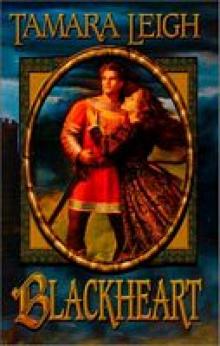 Blackheart
Blackheart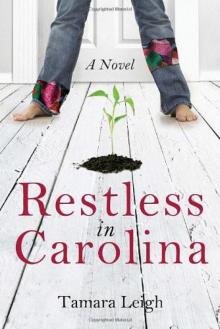 Restless in Carolina
Restless in Carolina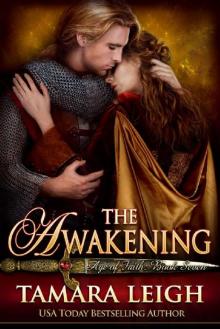 THE AWAKENING_A Medieval Romance
THE AWAKENING_A Medieval Romance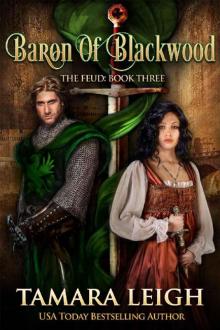 Baron of Blackwood
Baron of Blackwood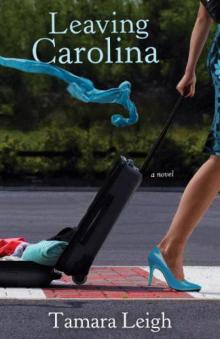 Leaving Carolina
Leaving Carolina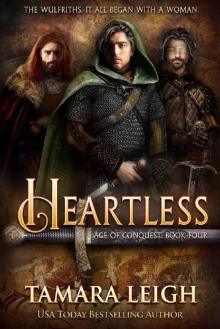 HEARTLESS: A Medieval Romance (Age of Conquest Book 4)
HEARTLESS: A Medieval Romance (Age of Conquest Book 4)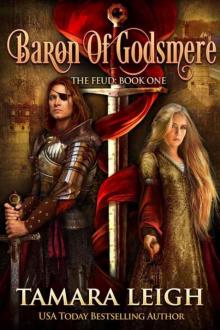 Baron of Godsmere
Baron of Godsmere Lady Of Eve
Lady Of Eve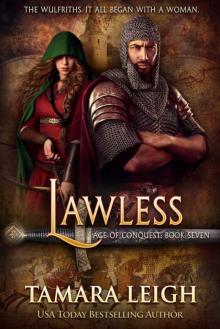 LAWLESS: A Medieval Romance (AGE OF CONQUEST Book 7)
LAWLESS: A Medieval Romance (AGE OF CONQUEST Book 7) Lady Of Fire AKA Pagan Bride
Lady Of Fire AKA Pagan Bride The Yielding (Age of Faith)
The Yielding (Age of Faith) The Redeeming: Book Three (Age of Faith)
The Redeeming: Book Three (Age of Faith) LADY UNDAUNTED: A Medieval Romance
LADY UNDAUNTED: A Medieval Romance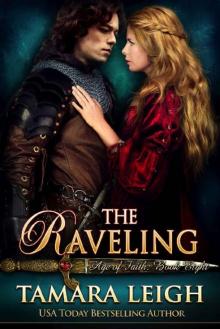 THE RAVELING: A Medieval Romance (Age of Faith Book 8)
THE RAVELING: A Medieval Romance (Age of Faith Book 8) LADY EVER AFTER: A Medieval Time Travel Romance (Beyond Time Book 2)
LADY EVER AFTER: A Medieval Time Travel Romance (Beyond Time Book 2)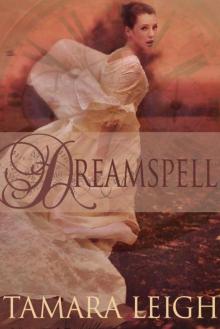 Dreamspell
Dreamspell The Unveiling (Age of Faith)
The Unveiling (Age of Faith)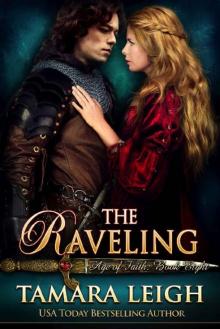 THE RAVELING
THE RAVELING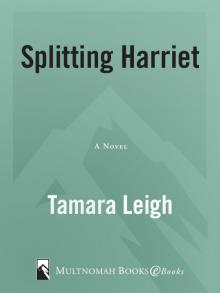 Splitting Harriet
Splitting Harriet Age of Faith 4 - The Kindling
Age of Faith 4 - The Kindling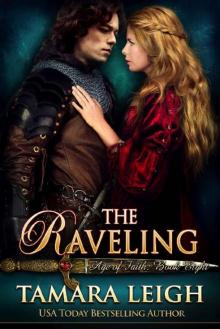 THE RAVELING_A Medieval Romance
THE RAVELING_A Medieval Romance Perfecting Kate
Perfecting Kate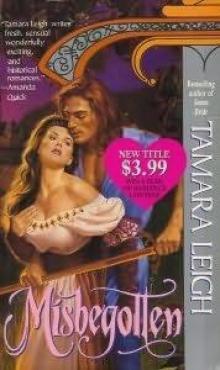 Misbegotten
Misbegotten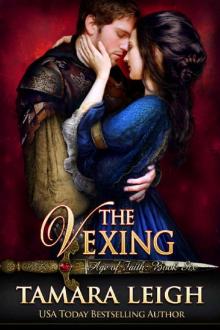 THE VEXING: A Medieval Romance (AGE OF FAITH Book 6)
THE VEXING: A Medieval Romance (AGE OF FAITH Book 6)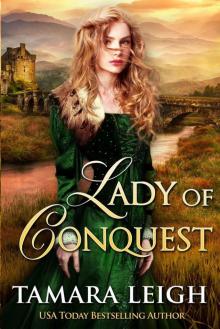 LadyOfConquest:SaxonBride
LadyOfConquest:SaxonBride